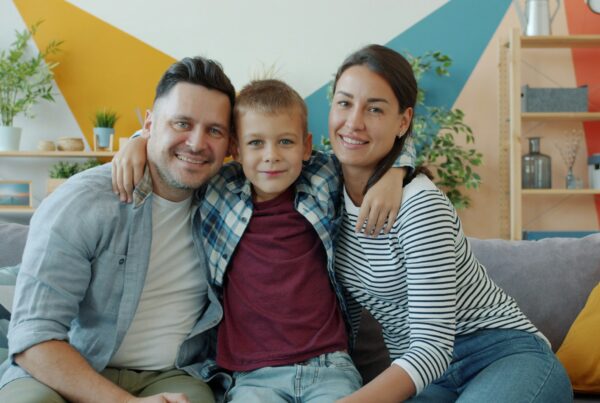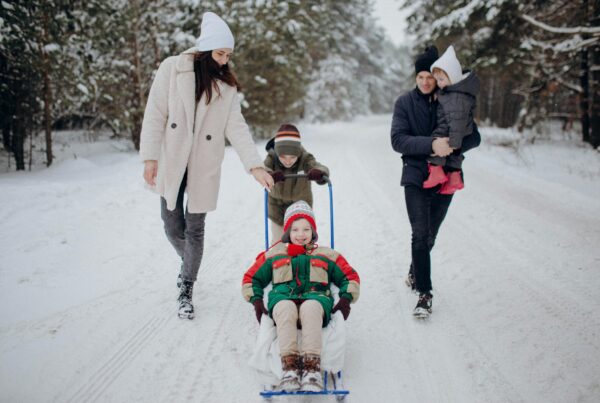Promoting Independence: How Occupational Therapy Can Empower Growth for Individuals and Families Across Their Lifespan.
Katie Zavodny-Olson, MS, OTR/L, Occupational Therapist at Chileda
At Chileda, we believe every child deserves the opportunity to thrive. For children and young adults with autism spectrum disorder (ASD), intellectual and developmental disabilities (IDD), behavioral challenges, etc. Occupational Therapy (OT) can be a transformative support system—helping them build independence, confidence, and essential life skills.
What Is Outpatient Occupational Therapy?
Outpatient OT provides therapeutic services in a clinical setting outside of hospitals or schools. This model allows for individualized, one-on-one care in a structured environment. Therapists work closely with children and their families to support development in a variety of areas, such as:
- Fine motor coordination
- Sensory processing
- Self-care and daily living skills-Activities of Daily Living (ADLs)
- Emotional regulation
- Social interaction and communication
Why Early and Ongoing OT Matters
Laying the Foundation in Early Childhood
The first few years of life are critical for brain development. Outpatient OT can support infants and toddlers showing signs of developmental delays, sensory integration challenges, or feeding difficulties. Early intervention can significantly improve long-term outcomes.
“The earlier that therapy begins, the better the outcome for the child. Critical periods of development—especially between birth and age 3—offer a unique window of opportunity.”
— Centers for Disease Control and Prevention (2023)
Supporting School-Age Children in Daily Life
As children grow, they face new challenges in school and social settings. OT can help children with autism, ADHD, and learning disabilities develop the skills needed to succeed academically, socially, and emotionally.
“Occupational therapy supports school performance by fostering attention, self-regulation, fine motor development, and executive functioning.”
— American Occupational Therapy Association (2020)
Building Independence in Adolescents and Young Adults
Teens and young adults often need support navigating the transition to adulthood. OT helps them develop life skills such as:
- Organization and planning
- Personal hygiene routines
- Vocational readiness
- Money and Life Skills management
“Occupational therapists can assist adolescents in making successful transitions to adulthood through skill-building that addresses independent living, employment readiness, and community integration.”
— Case-Smith & O’Brien (2015)
The Power of Family Involvement
At Chileda, we know that therapy is ongoing. Outpatient OT empowers families with tools and strategies to support their child at home, creating consistency and reinforcing progress.
“Family-centered care is a hallmark of pediatric occupational therapy, emphasizing collaboration, communication, and continuity between the clinical and home environments.”
— Moore & Lynch (2018)
Chileda Shine Feeding Therapy
Chileda Shine also offers SOS (Sequential Oral Sensory) Feeding Therapy, which is a transdisciplinary program designed to assess and treat children with feeding and mealtime difficulties. SOS therapy integrates sensory, motor, and oral motor factors to help children and families develop positive experiences and skills toward eating.
The main purpose of the SOS approach is to:
- Increase a child’s comfort level with food by exploring and learning about the different properties of food in a non-stressful, playful way.
- Address underlying sensory and oral-motor deficits that may be contributing to feeding difficulties.
- Improve a child’s experience and relationship during mealtime by gradually building feeding skills through a structured hierarchy of steps to eating.
The Chileda Edge
At Chileda Shine OT we are proud to offer services that support the whole child—and their family—on the journey to greater independence and success. We are deeply enthusiastic about empowering children to develop essential skills for everyday life through a bottom-up approach. By assessing and supporting the individual as a whole, understanding the role of external factors, and building skills through individualized playful experiences our goal is to improve lives-one child at a time.
Our Feeding Therapy program adopts a similar approach, promoting oral-motor skill development for safe eating, seeking to reduce anxiety and aversions related to food and supporting adequate nutritional intake for growth and health. We rely on family-centered, play-based strategies tailored to each child’s sensory and oral-motor needs. Our feeding therapy happens in a safe, low-pressure environment that encourages comfort yet emphasizes empowerment.
How to Get Started?
If you’d like to learn more about our outpatient OT services, or food therapy program visit us directly at Chileda Shine Occupational Therapy – Chileda
We work with children and families to foster growth in a fun, engaging, and purposeful way, making sure every child has the tools they need to live their most independent life.
References
- American Occupational Therapy Association (AOTA). (2020). Occupational therapy’s role with children and youth. https://www.aota.org
- Case-Smith, J., & O’Brien, J. C. (2015). Occupational Therapy for Children and Adolescents (7th ed.). Elsevier.
- Centers for Disease Control and Prevention (CDC). (2023). Learn the signs. Act early. https://www.cdc.gov/ncbddd/actearly/index.html
- Moore, A., & Lynch, H. (2018). Understanding family-centered care in pediatric occupational therapy: A scoping review. British Journal of Occupational Therapy, 81(6), 337–347.
- SOS Approach to Feeding. (n.d.). Retrieved from https://sosapproachtofeeding.com
- Toomey, K. A. (2010). SOS Approach to Feeding. [Training Manual]
Katie Zavodny-Olson is an Occupational Therapist at Chileda in La Crosse, WI, serving students in both the residential as well as Shine Community Services programs. She has over 9 years of direct professional occupational therapy experience and is deeply passionate about providing holistic yet individualized care. Katie’s approach to care involves integrating playful experiences to build skills that help children thrive. She firmly believes that incorporating both community and family support is key to helping children achieve long-term success. In her spare time, Katie enjoys being outdoors and participating in sport activities with her family.
*The information provided on this blog is for general informational purposes only and does not constitute medical or professional advice. Chileda, Inc. strives for accuracy but is not responsible for errors or omissions. Chileda Inc. disclaims any liability for any losses or damages arising from the use of this blog site.



